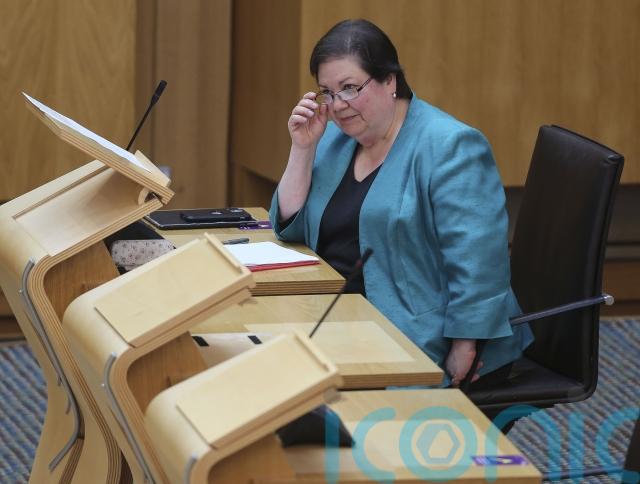
The Scottish Government has rejected amendments to a Bill creating a patient safety commissioner that would strengthen the position of families after major medical incidents.
Scottish Labour deputy leader Dame Jackie Baillie proposed a set of amendments – collectively dubbed “Milly’s law” – that would place a duty on the commissioner to advocate for the families of people impacted by a major incident in relation to health care, including helping them get legal representation, bereavement support, the outcomes of investigations and providing information for whistleblowers.
The changes would also place a responsibility on the commissioner to hand a report into a major incident to the chief constable of Police Scotland and the procurator fiscal.
The law was named after 10-year-old Milly Main, who had been in remission from leukaemia at the Queen Elizabeth University Hospital (QEUH) in Glasgow before she died from an infection in 2017 believed to have been caused by the hospital’s water supply.
Speaking in favour of the amendments, Dame Jackie said: “The amendments would empower the patient safety commissioner to advocate for people that have been failed by the health care system.
“They would ensure that those affected by such incidents are supported in knowing their rights and getting the appropriate help.

“By empowering the role of the commissioner, we can begin to reset the balance between families and powerful public bodies.”
But saying the Government would vote against the amendments, public health minister Jenni Minto said: “We all share the desire for the patient safety commissioner to be able to look into healthcare safety issues arising from major incidents where multiple patients are harmed.
“I’ve considered very carefully how best to achieve this and my view remains that it is more effective to allow the commissioner to be guided by patients on the issues they look into and the actions they take.
“I do not wish to inadvertently tie the commissioner’s hands in respect of the sort of circumstances they can look into and I worry this group of amendments, by adding very specific steps for the commissioner to take in relation to a certain group of incidents, would unintentionally undermine the commissioner’s vital ability to set their own agenda and to look into the issues of most concern to patients.”
Responding, Dame Jackie said she was “genuinely disappointed”, as an amendment placing a function on the commissioner to advocate for those affected by a major incident fell by 48 votes to 58.
Another, which would give the commissioner powers over redress and awards for the victims of a major incident, fell by 47 votes to 59.
A proposed change that would have provided further information for families fell by 50 votes to 58, while the amendment that would require a report be handed to the chief constable and procurator fiscal fell by the same margin.
Subscribe or register today to discover more from DonegalLive.ie
Buy the e-paper of the Donegal Democrat, Donegal People's Press, Donegal Post and Inish Times here for instant access to Donegal's premier news titles.
Keep up with the latest news from Donegal with our daily newsletter featuring the most important stories of the day delivered to your inbox every evening at 5pm.